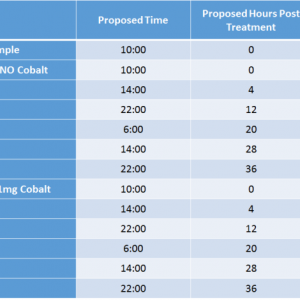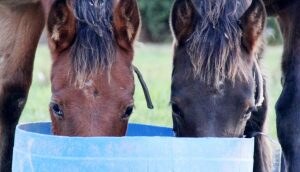Equine Herpes Virus
Equine Herpes Virus is the most common cause of upper respiratory infections.
Clinical signs of EHV infection include a fever, runny nose, runny eyes, cough, sores in the nose, depression, loss of appetite, and swelling in the legs.
EHV can occasionally cause a neurological disease characterised by various degrees of weakness, inability to get up or stand, and even death.
EHV is also a cause of abortion in mares.
There are several different types of EHV. Type 4 causes most of the respiratory disease; type 1 causes virtually all of the abortion and some of the respiratory disease; and many types can cause the nervous system symptoms.
Vaccinate all horses except pregnant broodmares with a modified live EHV-1+4 vaccine (Duvaxyn) every three months to maintain good immunity.
At a minimum, vaccinate every 6 months. Vaccinate pregnant mares at 5, 7, and 9 months of gestation with a killed EHV-1 vaccine (Pneumabort K +1B) to prevent abortion.
Tetanus
Tetanus causes “lock jaw” and death
Tetanus is caused by a clostridial bacteria that lives in the soil
It infects animals with deep wounds
Vaccinate in the neck muscles once a year or if animal gets a deep wound.
Do not use the vaccine that combines strangles with tetanus. You will get a much higher rate of site reaction.
Strangles
Strangles is caused by a bacteria, Streptococcus Equi
It is characterised by swollen, abscessed lymph nodes, thick green nasal discharge, difficult breathing, and even death in severe cases
“Bastard strangles” involves abscesses in the chest, abdomen, or legs. These abscesses may remain for months causing severe weight loss and ill health for extended periods of time. When they eventually rupture, the animal may die.
Vaccinate in the large muscles at the back of the back legs if possible as this reduces the possibility and severity of site reactions.
Repeat every 6 months for good protection.
As this vaccine has a higher rate of reaction, many people choose to vaccinate only when there is an outbreak of the disease in the area.
A Strangles vaccine is less likely to cause a reaction if it is given alone rather than in combination with any other disease antigen in the same vaccine.
A new intra-nasal vaccine (Pinnacle) has become available in New Zealand. This has been used for several years in North America and is effective while eliminating the site reactions that were common with the injectable versions.




